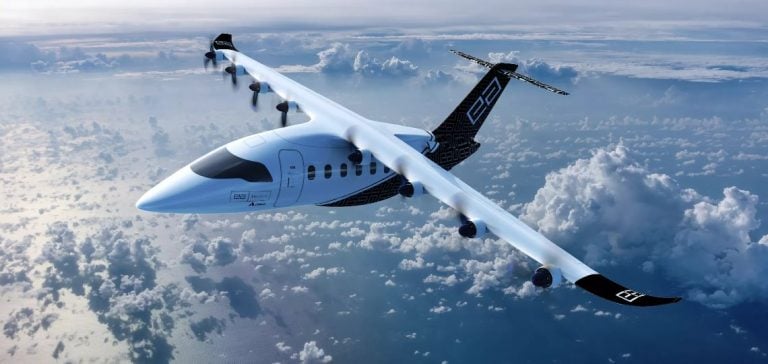The first test flights of an electric airplane designed by Aura Aero, a French company specializing in aerospace, are scheduled for late October to early November. This development marks an important milestone in the aviation industry, aiming to reduce the carbon footprint of air transportation. François Durovray, the French Deputy Minister of Transport, visited the company’s facilities, located at Toulouse-Francazal Airport in Cugnaux (Haute-Garonne), and praised the “magnificent industrial project” of this innovative start-up.
Goals of the first test flights
Aura Aero, founded in 2018, announced that these test flights will depend on weather conditions but are expected to occur within two weeks. These test flights are a critical step for the “Integral E” model, a two-seater electric plane designed to embody a more ecological and sustainable aviation approach. The company’s president, Jérémy Caussade, expressed his hope to see this aircraft available for commercial sale within the next two years.
Financial support from the European Union
The Aura Aero project benefits from significant financial support: an investment of 95 million euros has been granted by the European Union Innovation Fund. This funding, the first of its kind for an aerospace company, reflects the importance of innovation in the sustainable transportation sector.
The company plans to increase its production and development by building a new factory near its headquarters in Toulouse. Currently, Aura Aero employs around 270 people and is planning to submit the building permit for this future facility by the end of the month.
Development of the ERA: the hybrid plane for regional transportation
In addition to the “Integral E” model, Aura Aero is working on the ERA (Electrical Regional Aircraft), a hybrid-electric plane project with 19 seats, intended for regional transportation. The first flight of the ERA is planned for 2026, with service launch anticipated in 2028. Equipped with eight propeller engines, this plane could carry up to 19 passengers or 1.9 tons of cargo, with a maximum range of 1,600 kilometers, providing a viable solution for regional routes.
International expansion and strategic collaborations
As part of its expansion strategy, Aura Aero plans to build a 50,000 m² factory at Daytona Beach International Airport in Florida, which will serve as its American headquarters. The inauguration of this facility is scheduled for 2028, enabling the company to accelerate production for the North American market.
The company has already signed letters of intent with 12 airlines, totaling 570 pre-orders for the ERA. Among these agreements is an order for 50 aircraft from the American regional carrier JSX, a strategic partnership announced at the end of 2023. This expansion highlights the growing interest in sustainable and hybrid transport solutions within the global aerospace industry.






















